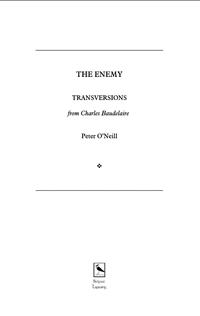
6 minute read
What Eurydice Really Said poems by Tracy Gaughan
Writer, editor, and broadcaster Tracy Gaughan is based in Galway, Ireland. Her poetry and short fiction have been widely published in literary magazines and journals including The Blue Nib, Bangor Literary Journal, Re-Side, The Honest Ulsterman, and others. Twice shortlisted for Galway Arts Trust Poems for Patience, her work explores themes of historical legacy, death, love and loss, ecology, and the female experience. She recently completed an MA in International Literatures. A mainstay on the cultural scene, Tracy facilitates creative writing workshops, presents Westwords on Ireland’s Community Radio Network and is UK/IRL poetry editor at The Blue Nib.
The listening roses on the threshold prevail and I clasp my hands in resignation. From inside myself, I scream. Vain Orpheus! Release thine arms of lamentation from my bound unwilling feet and let me go. The knell of your name is death breathing.
Advertisement
Coward! Your love was not true. You died not for it. Love died for you. Love whose notes your music played, whose words your verses spoke, whose veins strung the lyre you shattered, seducing the nymphs of Spring!
Yes, your grief brings tears to stones, but please clothe thyself. Recover those black locks you lavish like conceited wreaths about me. Let the other bear me, death, with his love as old as earth, sleep’s twin, whose longhaired silence is thistledown
to my brow; whose shrouded wings yet folded, traverse the floors of time like angels in the under-boughs and burrows. I yearn not for resurrection but a path through Hades rivers five. Oh, to lie in the fields of the blessed!
Begone Orpheus! Ere, I call out your wretched name that burns my lips like bitter wine and bids me vanish like breath into the night.
The Last Forester of Mecklenburg
- for Achim Von Arenstorff (1867-1926)
A pendulous branch creaks and a door to the forest opens. A parent peering into a nursery he silently cares for
the birches; watches them blossom as love blossoms. Into the lady of the woods, into the mystical skin of her
white cloak he is born again. In her flayed-bark scriptures, he reads the mind of God, so rich in faith, alive
with Indic legend and the once damp secrets of Novgorod - whose spalted shadows return at nightfall to their clay-soiled
places. The darkness is daylight to him as everything still exists: the fox in the hole, the mushroom fruiting
on the horizon, the fluent roots of his feet entwined in hers; her underground pathways energetic with sunbeams.
The forest speaks its own tongue: tree frogs hoarse for love, raindrops fat with syntax rattling to life in the ear.
An act of love, he releases his feet from her soft ecology, climbs her limbs like a ladder to the sky. Vibrating, touched
by electricity, she had been waiting for him her whole life to reproach heaven, curse the Slavs who butchered her,
wolves on a doe, lapped from her breast the sap that wheeled them into the stars of spring; the townsfolk
who incinerated her - a witch, a burned scroll. But for days the door to the forest has been swinging
uselessly open. The crows have begun to grieve some grim communication with the air, and groves
of voiceless standing people are falling like wheat to the sickle without knowing why.
Annie, When I Heard
(Annie refers to the CPR doll developed by Asmund Laerdal and modelled on the widely circulated death mask of an unknown woman - famously referred to as l’inconnue de la Seine - who drowned in Paris, c. 1880)
that the toymaker, Asmund, loved you, I thought it was a love story. But when I asked, are you okay? caressed your head, I saw you wore the face of the dead: the Parisian pleasure girl, they say murdered herself,
unfortunate child who drank the Seine. Whose legend are you, l’inconnue? Hoofed or winged? No matter. Beautiful suicide sank to the grave, fished out in nets of Saint-Cloud. Oh, Annie resusci
sans soucis, sans merci, fallen woman, bitter as gall, who needed to be dead to be loved. When the water drowned your stains they worshipped you, a heroine! That mute smile of salvation, a souvenir cast one
thousandfold, a coveted objet d’art. L’inconnue you grew neither young nor old but numerous. The poets, the mourning lovers placed death safely in you, inscribed your face with fantasy
and necrophilic lusts ill-using you, as Asmund, who knew those lips, well versed in kisses, were apt to save a life. I compress your chest sweet Annie resusci, sans soucis, sans merci. You are death by proxy.

Peter O’ Neill is the author of More Micks than Dicks, a hybrid Beckettian novella in 3 genres (2017) a work of translation The Enemy- Transversions from Baudelaire ( 2015) and a number of poetry collections among them The Dark Pool and Dublin Gothic which are both out of print. He has just finished a monograph on the influence of Finnegans Wake on Comment c’est/How It Is a ground breaking work of its kind and he is currently working on an English course book and a novel, when he finds the time. https://peterseanoneill.blogspot.com/
Middle Age
Screw middle age! At least, that’s how I always Used to feel about it. You’re as old, or as young, As you feel. Or so I used to think.
Then, like the dreaded furies, she left me With her calling cards, all three! Rhinitis, Thyroid dysfunction, and then just for good measure
She blessed me with an absolutely ghastly dose Of ulcerous colitis. Now, my life is governed by diets, Stress management and breath control.
I wait for my monthly meetings up at the hospital To meet with my support group. Inside the reception Area I stop before the bakery shop
With its mountain of cream doughnuts and custard Tarts. There it stands like a fabulous metaphor for my Once mythic youth, when I could feast and gorge with impunity.
Cornuto, or The Appalling Destiny of Everyman
I see the bustling young, those among us Who still wear their invisible golden crowns, Each one oblivious to his real fate And who will very soon appear with the terrible horns, Transforming the man into but a clown. It is as certain as Archimede’s fabled sword, The spherical condition of man, everyone! Though each, in his turn, will refuse to believe it. Noli turbare circulos mios... But, when they have finally fallen to the floor, As the fatal weapons are drawn upon the beloved, And every passionate thrust will further embroil them Into the universal screw of the one from Syracuse. Such, at least, is the world of men who are incredibly obtuse.
Mathew the Boatman
Bid me come unto thee on the water (14:28)
By Bethsaida, near the Sea of Galilee, the boat came. John’s decapitation seemed to throw a terrible shadow Upon the whole land. We were all frightened, restless, And so very tired. To be honest, we just wanted to sleep.
But, we left the crowds behind us and set sail. Jesus kept staring out upon the waves. For a whole day Peter just watched him, Sustained, no doubt, by the liquid luminescence.
How the light played upon the water, its solar power Unlimited, transcending all into unlimited credit. He must have thought about the pagans who once loved it.
They who dwelt only in the tangible, Who put their hands out to touch it, Instead of waiting around for bleeding miracles to come.






